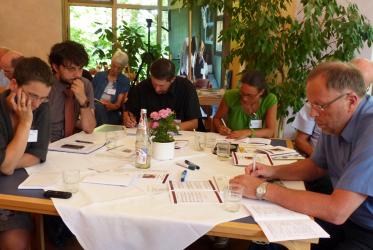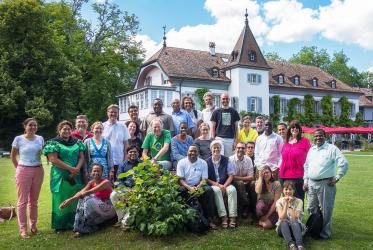Displaying 301 - 320 of 364
02 April 2015
Momentum builds for ban on nuclear weapons
16 December 2014
WCC launches global ecumenical network for advocacy for just peace
09 December 2014
Christians are called to be peacemakers and to build just peace
02 December 2014
New UN document opens door for churches to do more for indigenous rights
23 September 2014
To save the earth, all must change their ways, says Ecumenical Patriarch
19 September 2014
Prayers, reflections and action during “Time for Creation”
15 September 2014
Christian responses on health and healing
16 July 2014
Church of England’s vote on women bishops
15 July 2014
“Ecumenism in the forest” draws smiles
07 July 2014
Addressing ecology, theology and justice in practice
01 July 2014
Church leaders call for justice and peace in Syria
13 June 2014









